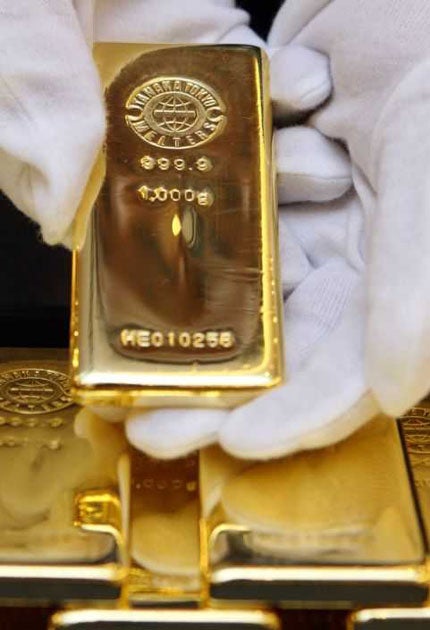Ben Yearsley: Making the most of tax-free income
The Analyst

Your support helps us to tell the story
From reproductive rights to climate change to Big Tech, The Independent is on the ground when the story is developing. Whether it's investigating the financials of Elon Musk's pro-Trump PAC or producing our latest documentary, 'The A Word', which shines a light on the American women fighting for reproductive rights, we know how important it is to parse out the facts from the messaging.
At such a critical moment in US history, we need reporters on the ground. Your donation allows us to keep sending journalists to speak to both sides of the story.
The Independent is trusted by Americans across the entire political spectrum. And unlike many other quality news outlets, we choose not to lock Americans out of our reporting and analysis with paywalls. We believe quality journalism should be available to everyone, paid for by those who can afford it.
Your support makes all the difference.What surprises does Alistair Darling have in store for us in next week's pre-Budget Report? Tax rises seem a certainty but the real question is which taxes will rise and by how much?
In my opinion, capital gains tax is one of the mostly likely candidates, with an increase to 25 per cent (from 18 per cent currently) very much on the cards. There is also speculation surrounding the removal of higher rate tax relief on pensions. Those earning more than £150,000 per year already have restricted tax relief, and I wouldn't be surprised if this threshold were lowered to £100,000.
Whatever happens, it will place extra emphasis on the importance of personal tax shelters. For most people the individual savings account (ISA) is the first port of call, and pensions will remain an important part of long-term financial planning. Another such investment, albeit a more specialised one, is the venture capital trust (VCT).
With a VCT any capital growth or income you get is completely tax free. What is more you are also eligible for a tax rebate of up to 30 per cent of your investment in that tax year.
The maximum you can invest is £200,000 per year, meaning you could get a tax rebate of up to £60,000. This is regardless of your highest marginal tax rate.
A VCT invests in very small companies, in fact those with no more than 50 employees and £7m in assets (at the time the VCT invests). These are often in the early stages of development, but sometimes they are more mature businesses where the management require finance in order to buy out the company from an existing owner.
Now is an especially interesting time because the best venture capital investments are often made in times of recession because banks aren't willing to lend and venture capitalists can strike the best deals. One of my favourites for this tax year is the Downing Absolute Income VCT 2.
Downing has managed VCTs since 1997 and during that period has stuck to the same style of investing. The strategy is to back entrepreneurs who have been successful in business before. Past examples of Downing's investments include pubs, children's nurseries and health clubs.
The common factor is that the business owns the freehold on the premises in which it is based. This gives Downing some security, because if the business fails the freehold property can be sold to repay some or all of the investment.
Clearly Downing won't invest in businesses if it thinks failure is a likely outcome but it's a fact of life with such small businesses that sometimes things go wrong. Downing's job as the VCT manager is to ensure that the failures are few and far between and that if a business does fail they can at least recover some or all of their investors' money.
The chief objective of this VCT is to provide a long-term tax-free income stream with modest levels of capital growth. Like all VCTs, it should definitely be held for the long term, by which I mean seven to 10 years. The dividend target is 5 pence per share per year, based on a £1 per share launch price. This yield is tax free, and doesn't even need to be mentioned on your tax return. When you take into account that each £1 of initial investment actually only cost you 70 pence (after the 30 per cent tax rebate) then the real yield is 7.1 per cent – still tax free!
I have been a long-term fan of VCTs and will be investing in them again this year. VCTs can act as a powerful supplement to an investor's income over the long term and in my opinion Downing's well-resourced team are excellent at what they do.
Ben Yearsley is the investment manager at Hargreaves Lansdown, the asset manager, financial adviser and stockbroker. For more information about the funds included in this column, visit www.h-l.co.uk/independent
yourmoney@independent.co.uk
Join our commenting forum
Join thought-provoking conversations, follow other Independent readers and see their replies
Comments